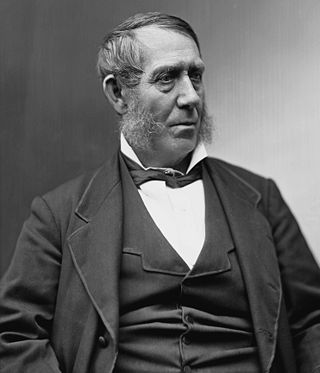
Samuel Jordan Kirkwood was an American politician who twice served as governor of Iowa, twice as a U.S. Senator from Iowa, and as the U.S. Secretary of the Interior.
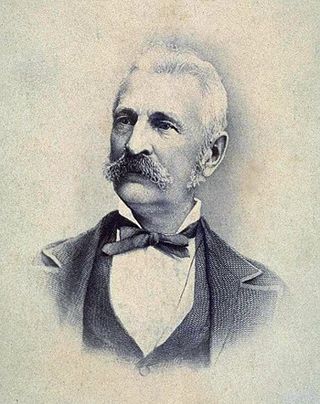
Serranus Clinton Hastings was an American politician, rancher and lawyer in California. He studied law as a young man and moved to the Iowa District in 1837 to open a law office. Iowa became a territory a year later, and he was elected a member of the House of Representatives of the Iowa Territorial General Assembly. When the territory became the state of Iowa in 1846, he won an election to represent the state in the United States House of Representatives. After his term ended, he became Chief Justice of the Iowa Supreme Court.
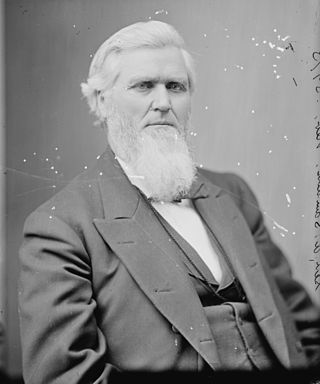
Alvin Saunders was a U.S. Senator from Nebraska, as well as the final and longest-serving governor of the Nebraska Territory, a tenure he served during most of the American Civil War.

Nathaniel Pitcher Tallmadge was an American lawyer and politician. He served two terms as United States Senator from New York (1833–1844) and was the 3rd Governor of the Wisconsin Territory (1844–1845).

Thomas Mead Bowen was a state legislator in Iowa and Colorado, a Union Army officer during the American Civil War, a justice of the Arkansas Supreme Court, briefly the Governor of Idaho Territory, an elected judge in Colorado and a United States senator from Colorado.
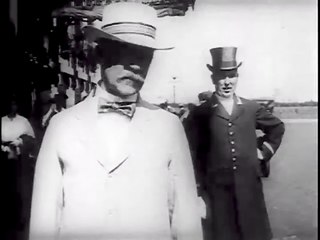
The 1916 Republican National Convention was held in Chicago from June 7 to June 10. A major goal of the party's bosses at the convention was to heal the bitter split within the party that had occurred in the 1912 presidential campaign. In that year, Theodore Roosevelt bolted the GOP and formed his own political party, the Progressive Party, which contained most of the GOP's liberals. William Howard Taft, the incumbent president, won the nomination of the regular Republican Party. This split in the GOP ranks divided the Republican vote and led to the election of Democrat Woodrow Wilson.
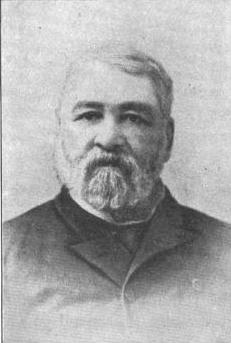
John Fitch Kinney was a prominent American attorney, judge, and Democratic politician. He served as Justice of the Supreme Court of Iowa, twice as Chief Justice of the Supreme Court of the Territory of Utah and one term as the Territory of Utah's Delegate in the House of Representatives of the 38th Congress.
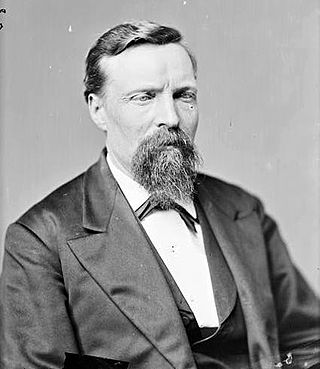
Ezekiel Silas Sampson was a lawyer, prosecutor, Civil War officer, judge, and two-term Republican Congressman from Iowa's 6th congressional district.

Thomas Harold Werdel was an American politician and lawyer who served as an assembly member and Representative from California as a member of the Republican Party.

Adoniram Judson Holmes a Republican, was the first U.S. Representative from Iowa's 10th congressional district.

John Edwards was an American Civil War brigadier general in the Union Army, an American politician and a U.S. Representative from Arkansas. He served in Congress for less than a year before being removed from office following allegations of fraud in his 1870 election. Edwards also served in both houses of the Indiana General Assembly and was a member and speaker of the Iowa House of Representatives.

William Milo Stone was the sixth Governor of Iowa (1864–68).
Charles Paulk was an American politician.
William G. Woodward was an American judge and politician.

In the 1863 Iowa State Senate elections, Iowa voters elected state senators to serve in the tenth Iowa General Assembly. Following the downsizing of the Iowa Senate from 49 to 46 seats in 1863, elections were held for 34 of the state senate's 46 seats. State senators serve four-year terms in the Iowa State Senate.
Nathan Marsh Pusey was an American politician.
C. G. Bridges was an American politician.
Charles B. Kern was an American politician.
John Young Stone was an American politician.
Charles S. Van Eaton was an American politician and businessman.













